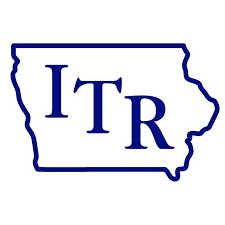Reynolds provides $50M in federal funds for mental health

Mental health providers received a boost Tuesday with an allocation of $50 million in federal emergency pandemic funding. The announcement comes less than a month after the Iowa Legislature adjourned without approving continued funding for a plan to create a Children’s Mental Health System that’s supposed to begin operating next year.
Gov. Kim Reynolds made the announcement in Urbandale at the offices of the Iowa Behavioral Health Association, which represents 29 mental health organizations across the state. Joining Reynolds was the leader of one of those organizations, Andrew Allen, CEO of YSS Inc. and Flora Schmidt, the association’s executive director.
“We are making meaningful investments into Iowa’s mental health services to help vulnerable Iowans and their families,” Reynolds said in a prepared statement. “Today’s investment is not only about adapting to the challenges we face today, but sustaining a compassionate and coordinated system for the future.”
The funding is part of $1.25 billion the state received in COVID-19 relief funds through the Coronavirus Aid, Relief and Economic Security (CARES) Act that was enacted in late March. Reynolds last week announced that $490 million of that money would be paid into the state’s Unemployment Insurance Trust Fund.
Of the $50 million for mental health funding, Reynolds has allocated $10 million to Medicaid providers that offer non-hospital-based inpatient and outpatient mental services, to cover increased costs associated with the pandemic such as offering telehealth visits. Another $10 million will go to substance abuse disorder providers that accept Medicaid.
The bulk of the allocation, $30 million, will be distributed on an equal per-capita amount to each of the 13 Mental Health and Disability Services (MHDS) regions to support adult and children’s mental health services.
“This funding could not have come at a better time,” Allen said. The trauma and uncertainty created by the pandemic have definitely created additional caseload for mental health providers, he said. “I look forward to advocating for permanent and stable funding for mental health in the next year.”
The $30 million allocated to the MHDS regions fills in a gap remaining after approximately $100 million in expected property tax revenues that flow to the districts.
Peggy Huppert, executive director of NAMI Iowa, said that the announcement came as a “complete surprise” to her. “I’m very grateful and very happy that she took this action. It is going to allow services to go forward and to fill some gaps,” she said. “But it doesn’t do anything to fix or to fund beyond this fiscal year.”
While there is funding, it’s disjointed and not sufficient to meet needs, particularly as the districts are required to provide additional services for adults and children with complex needs, Huppert said. For example, the state currently has 11 teams that provide around-the-clock response for people with high needs, a number that a state plan calls for doubling.
“We haven’t made any progress on that at all because the places that have [these teams] are losing money on them because there’s not enough funding,” she said. “We have to fund the things that we know work. The providers have to know the funding will be there down the line.”
Huppert credited Reynolds with developing a long-term plan for mental health funding, although the Legislature failed to act to fund it. “I think she really appreciates the need, which is why she did this,” she said.
To read a Business Record Insider story about past efforts by a mental health working group addressing funding, click here.










